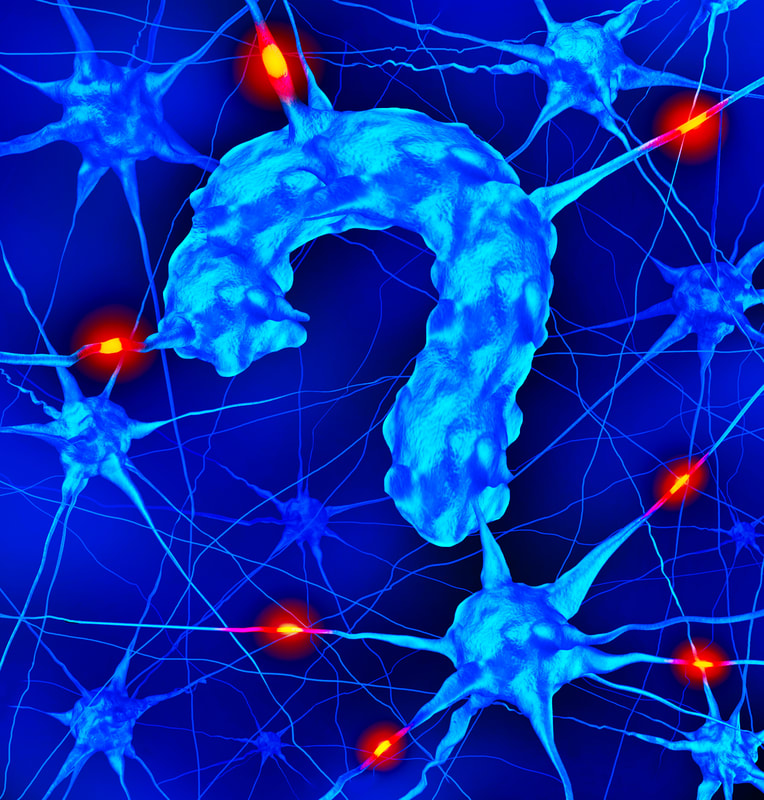Curiosity and the brain.
Curiosity builds on the evolutionarily conserved, reward-based learning mechanisms in our brains. At peak curiosity, dopamine pathways in the brain fire with increased intensity and there is a stronger connection between reward centers and the hippocampus — a brain area associated with memory. Dopamine plays a key role in stabilizing or consolidating memories. So, being curious is a great exercise in neuroplasticity, which is our brain’s ability to reorganize itself by forming new neural connections during our life as necessary, e.g. in the wake of injury or disease or to adjust and respond to changes in their environment, etc. This study also found that people are better at learning information that they are curious about and that memory for incidental material presented during curious states was also enhanced. Leverage your curiosity for learning! Is it possible to apply our brain’s curiosity mechanisms to overcome anxiety or fear? In this article, the author discusses how we can use curiosity to conquer fear through the use of associative somatic memories. In this process, we can learn to pair body sensations and positions with emotions. By identifying how we perceive this feeling, this information and new experience can teach us how to control the responses. I see this as not just as an opportunity to “grow your mind”, but also to grow and empower your mindset! Try this eye-opening exercise next time you are frustrated or anxious. This three-step exercise applies curiosity as a key skill to redirect your responses and help you to step out of what may be continuous anxiety and “worry habit” loops: 1. Stop and simply name the emotion (“X”) that you’re feeling, e.g. “Oh, that’s X.” 2. Now, look in a mirror and make note of how narrow or wide your eyes are. 3. Then open your eyes really wide as a way to jump-start your curiosity. Keep them open very wide for 10 seconds and notice what happens to the anxiety (or whatever difficult emotion you’ve identified). Does it get stronger or weaker? Does it change in character or shift in some other way? And did this process of being curious about these changes in your eyes help stop the negative emotions? Ideally, it did - and during what may be especially trying times now, this is certainly a potentially easy way to harness the power of curiosity and break the stressful cycle of fear or anxious thoughts. Another reason to disrupt the cycle of fear-based thinking - it’s actually quite difficult to be curious if we are afraid. Fear makes us focus on what we may interpret as the dangers of an unknown path and triggers an avoidance mechanism, thereby depriving us of the experience and pleasures of the activity. It also disrupts and impairs the ability to learn, to integrate positive new habits and more working knowledge. At the end of it, fear can prevent creativity and stop us in our tracks so that progress, while perhaps not entirely halted, can definitely be impeded. When we're overwhelmed by fear and anxiety, our minds seek certainty in an attempt to stabilize and feel safe again. But curiosity can be an antidote to fear! As Eleanor Roosevelt said, “Life must be lived and curiosity kept alive.” We must never stop being curious as perhaps it truly is our compass guiding us on our lifelong passion for learning. And there is no doubt that learning something new at any age can be instrumental in keeping our brains healthier and happier. Zivijio, in health and hope, Dr. Suzy Gazda Curious to learn more? See these additional references: “Why Humans Are Hard-Wired For Curiosity” Vivian Hemmelder & Tommy Blanchard, Harvard University (September 8, 2016) https://footnote.co/why-humans-are-hard-wired-for-curiosity/ The HumanConnectome Project at USC: http://www.humanconnectomeproject.org/ “States of Curiosity Modulate Hippocampus-Dependent Learning via the Dopaminergic Circuit” Matthias J. Gruber, Bernard D. Gelman, Charan Ranganath. 2014. Neuron https://www.cell.com/neuron/fulltext/S0896-6273(14)00804-6 This is Your Brain on Curiosity | Matthias Gruber | TEDxUCDavisSalon (2015) https://youtu.be/SmaTPPB-T_s Neuroplasticity: https://www.sciencedirect.com/topics/neuroscience/neuroplasticity
0 Comments
Your comment will be posted after it is approved.
Leave a Reply. |
AuthorDr. Suzanne Gazda, Integrative Neurology Archives
February 2024
Categories |

 RSS Feed
RSS Feed